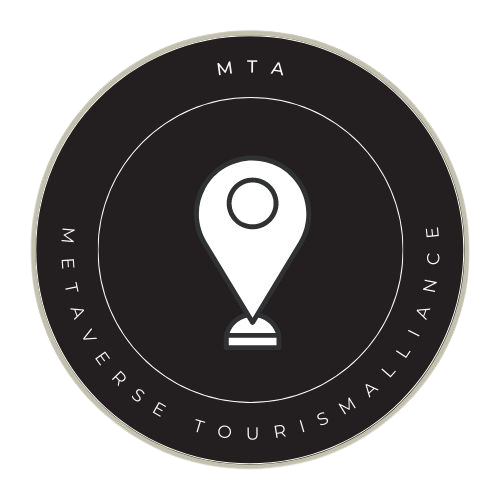The whole idea of the future of travel being hybrid allows us to think beyond traditional borders and augment our current tourism offerings. As travel operators and tourism professionals, understanding the potential of virtual tourism is key to driving new opportunities in the future.
Welcome to the world of Metatourism, where the physical and virtual realms converge within the metaverse to create an immersive travel experience like never before. Knowing where the opportunities are you only need to look at how the internet is being used today.
Top uses include, finding information, staying in touch with friends, entertainment and education. These are touchpoints associated with most tourism products today and areas that can be harnessed by tourism providers that think creatively about how to service new customers.

What is Metatourism?
Metatourism is the amalgamation of physical and virtual worlds, fueled by advanced technologies. It encompasses all technologies which allow tourists to experience different cultures in a virtual environment.
It transcends traditional constraints, offering a transformative travel experience that allows individuals to explore destinations, engage with attractions, and plan journeys without the limitations of physical presence.
The evolution of the tourism sector is happening today. The UN defines tourism as “a social, cultural and economic phenomenon which entails the movement of people to countries or places outside their usual environment for personal or business/professional purposes.” This definition could apply to virtual experiences of culture. However, Metatourism does not necessarily involve physical movement, therefore a more inclusive description must be created.
Often hailed as the next evolution of the internet, the metaverse is becoming a collective space where digital and physical landscapes intertwine. With technology proving cost-effective and readily implementable, the travel industry stands at the cusp of a $20 billion opportunity by 2030, according to McKinsey estimates.

Benefits of Metatourism for the Travel Industry:
- Expanded Reach: Metatourism allows travel companies to reach a global audience, breaking free from the constraints of physical locations and attracting a diverse range of participants.
- Cost-Effective Exploration: Virtual travel experiences reduce the need for physical travel, resulting in cost savings for both travelers and businesses.
- Innovative Marketing: The metaverse offers new and engaging ways to showcase destinations, accommodations, and attractions, fostering inspiration and decision-making among potential travelers.
- Enhanced Training and Onboarding: Virtual reality applications facilitate realistic training experiences, as demonstrated by MGM Resorts International’s use of VR headsets for staff onboarding.
Examples of Metatourism today
Histovery’s Augmented Exhibition: Responding to the Notre-Dame fire, Histovery created an augmented exhibition using the “HistoPad” touch screen, allowing visitors to virtually interact with the historical landmark through 3-D models, photographs, and audio elements.
ZEPETO World: The smartphone app ZEPETO World lets users create avatars and explore virtual representations of Korean landmarks, offering a detailed interactive map of Han River Park, fostering communication, shopping, and live performances.
BCB Group’s Metaverse City: BCB Group, a crypto banking group, established a metaverse city featuring iconic destinations like the Great Wall of China and the Statue of Liberty, providing a cost-effective alternative to physical travel.
Royal Commission for AlUla (RCU): AlUla became the first UNESCO World Heritage Site in the metaverse, allowing digital tourists to explore the ancient city of Hegra, including the Tomb of Lihyan son of Kuza.
These examples showcase the diverse applications of metatourism, ranging from historical explorations to virtual representations of global landmarks. They reflect the industry’s potential for innovation and creativity, offering a glimpse into a future where travel knows no bounds.

As we stand on the precipice of this metatourism injection into traditional travel circles, questions arise about the future of travel. Can a virtual experience truly replace the tangible thrill of exploration? While some hesitations persist, the metaverse is maturing at an unprecedented pace, driven by early adopters and visionaries in the travel industry.
What role will metatourism play in the global travel industry? Can we envision a future where our travel choices are not bound by geography but are instead guided by immersive virtual experiences? Join us at the MTA today to help craft the right answers to some of our most pressing questions about the Metatourism revolution.
Metatourism is not just a technological innovation; it’s a shift in how we perceive and experience travel. The MTA’s mission is to drive conversations, education and standards for the hybrid future of travel.

